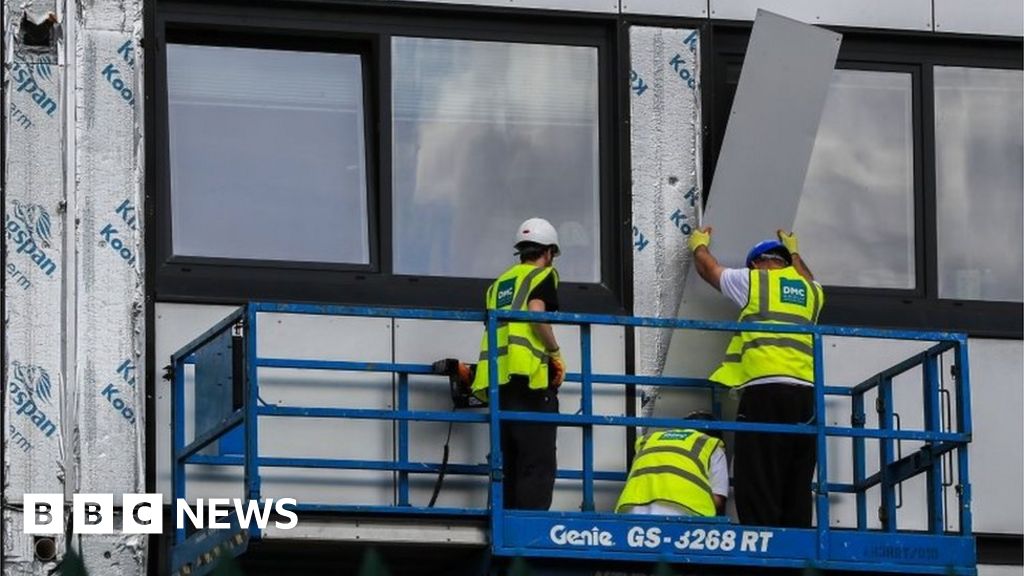In light of the cladding disaster, homeowners will have 15 years to legally dispute bad construction work, according to a minister. This would extend the present six-year time limit for bringing legal action against developers. The shift, according to Housing Secretary Robert Jenrick, will “place new cards in the hands of the leaseholders.” It comes amid fears that, in the aftermath of the Grenfell Tower incident, homeowners are footing the bill for fire safety improvements. The news will provide “little respite,” according to Labour, because the barriers to pursuing legal action were “too high and costly.” Thousands of other blocks of flats were discovered to be covered in similar flammable cladding after the 2017 fire that killed 72 people. This prompted a program of work to remove the material from buildings, as well as other fire safety measures, which left many people with hefty expenses. New fire safety laws are being criticized by survivors of the Grenfell Tower tragedy. What makes cladding dangerous, and what are your legal options? Mr Jenrick told Andrew Marr on the BBC’s Andrew Marr programme that “It’s not acceptable for the leaseholder or the taxpayer” to foot the bill for fire safety improvements.” I’m announcing today that we’re going to modify the law retroactively to give every homeowner 15 years to sue the folks who built their building if the construction is substandard.” This is a major step forward because the legislation, as we discovered, only gave you six years to sue the guy who built your house.” This usually provides less protection than if you had purchased a toaster or a refrigerator.” “Most of the cladded buildings were built in the period between 2000-17,” Mr Jenrick replied when asked about structures older than 15 years. “Not all, but the vast majority of those who are dealing with this particular situation will now be aided by this extraordinary adjustment in the legislation,” he said. Rachael Teebay, a Manchester leaseholder who bought her first property with her spouse, is facing massive construction fees. “I have spent days and weeks crying about it and wondering for our future,” she told the BBC in April. “What does declaring bankruptcy at this age mean for our future? It annihilates it. It’s a scary situation.” The government’s announcement would “bring little relief to homeowners trapped in unsellable, unmortgageable homes, as those already in the scope of the deadline have found barriers to mounting legal action too high and costly, and outcomes ineffective,” according to Labour’s shadow housing secretary Lucy Powell. Instead, she suggested that leaseholders be legally protected from costs, and that a building works agency be established to “pursue developers themselves, to guarantee that the polluter pays.” The government is under increasing pressure to provide greater assistance to homeowners who are struggling with high expenditures. In an unsuccessful attempt to create additional financial safeguards for leaseholders, a considerable number of its own MPs voted against the government on the Fire Safety Bill. Mr Jenrick expressed “great sorrow” for anyone affected by the fire, adding that all Grenfell-style cladding would be removed from buildings by the end of the year, with the exception of a few exceptions. The government set aside £3.5 billion in February to replace dangerous cladding on residential structures with a height of 18 meters (six stories) or more in England. This comes on top of the £1.6 billion set aside in 2020 for the removal of hazardous cladding. Residents in buildings under 18m can apply for a loan to help pay for removal, with a maximum monthly payment of £50. Many leaseholders, however, are now facing expenses for other safety improvements such as fire breaks, safer doors, and sprinkler systems, according to activists. Are you impacted by the topics discussed in this article? Have your say by sending an email to haveyoursay@bbc.co.uk. If you are willing to speak with a BBC journalist, please include your phone number. You can also contact us using the following methods: +44 7756 165803 (WhatsApp) Have your say on Twitter: @BBC HaveYourSay Photographs or video can be uploaded. Please read our terms and conditions as well as our privacy statement. If you can’t see the form on this page, go to the BBC’s mobile website to submit your question or remark, or email us at HaveYourSay@bbc.co.uk. Any entry should include your name, age, and location. The fire at Grenfell Tower/n
Read MoreHomeowners to get 15 years to sue for bad workmanship – minister
2021-07-04T09:32:23-04:00July 4th, 2021|





